When we look at different marketing methods across different industries, we find that there are some industries where SnapChat and TikTok and other “shiny” new methods are really effective. That’s often because of the target demographics of their ideal customer. In the aviation industry, we find the opposite – that the most traditional advertising methods are the most effective.
Which is why we almost always recommend trade show speaking and magazine advertising to any new company that wants to establish credibility quickly. And once you start one of those advertising methods – don’t stop!
But there are exceptions to every rule, and if you find that this year is an exception to EVERYTHING. Here are two traditional methods we recommend that you reconsider, and some aviation digital marketing strategies to consider this year.
[fusebox_track_player url=”https://traffic.libsyn.com/secure/aviationmarketing/Traditions_in_Marketing_for_Aviation_-_And_When_to_Break_Them.mp3″ background=”default” ]
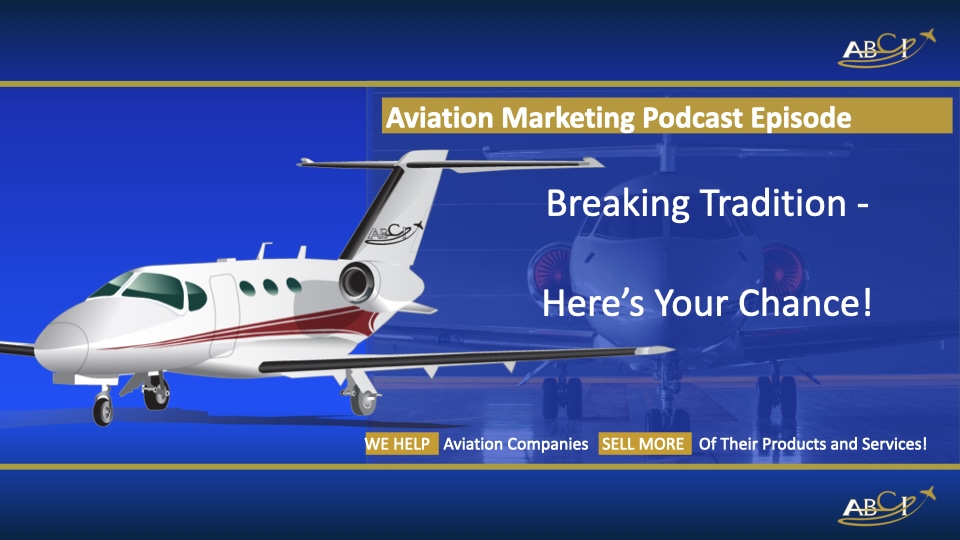
Paula Williams:
Welcome to this week’s episode. Today, we are talking about breaking traditions, which is something you almost never want to do in the aviation industry, especially in your marketing, but now, if you’ve ever wanted to discontinue something that you’ve been doing that was not effective, you have total license to do so right now, right?
John Williams:
Built-in.
Paula Williams:
Yep. Unprecedented. So you can take advantage of this opportunity. So we’ll talk about things that you could discontinue and some things that you could be doing instead.

John Williams:
Right.
Paula Williams:
Okay? All right. So tradition in the aviation industry dictates pretty much to if you are a reputable organization in the aviation industry, you have probably done one or both of these things at some point.
John Williams:
Many times.

Paula Williams:
Exactly. And generally speaking, if you are presenting at a trade show or advertising in a magazine, we recommend that you never ever stop, without having a very good reason.
John Williams:
Yeah. I mean, if you go into a trade show and/or advertising in magazines and you stop, then people automatically think, “Uh-oh.”
Paula Williams:
“What happened to them?”
John Williams:
Yeah.

Paula Williams:
Right. So, if you are always at the NBAA Regional, or always at HAI, or you are always at Women in Aviation, and then all of a sudden, you either downsize or you stop going, then you become the subject of gossip, right?
John Williams:
Yep, and not good gossip.
Paula Williams:
Not good gossip. Aviation people don’t gossip. They are far too mature for that, right?
John Williams:
Uh-huh (affirmative)-
Paula Williams:
Uh-huh (affirmative)- So the problem with that is people will wonder, are they running out of money? Are they downsizing? Are they cutting back on expenses? It is not a good look, because you always want to be improving. So generally speaking, whenever we start something that is, especially in one of these categories, you want to start small and then add on, so that your presence is a little bit larger, a little bit nicer, a little bit more polished every year, right?
John Williams:
So that once you start going to NBAA, whether it’s regional or the main thing, you never stop.
Paula Williams:
Exactly. And otherwise, people will talk. And of course, at an event, they have nothing to do but to talk about-
John Williams:
Because you’re not there.
Paula Williams:
… who’s there and who’s not, and everything else, and all of the thought leaders in the industry will be surmising in these little coffee organizations and networking events, and things like that. So, “Have you seen who’s here, have you seen who’s not here? Have you heard about what’s going on with them?”
John Williams:
We hear it every time we’re there.
Paula Williams:
Exactly. So you don’t want to be the subject of not good gossip. So if you’re going to a trade show, you always want to do that. The difference is, this year, we have COVID-19. This is 2020, if you’re listening to this after the fact, and a lot of the shows have been canceled this summer, and into the fall, there’s a little bit of speculation about, are they actually going to have events? Are they going to limit participation? Are they going to limit attendees? How are they going to handle?
John Williams:
Is it going to be like Katrina?
Paula Williams:
Yeah. How are they going to handle the social distancing, and things like that, and is it going to be like that year when they had a hurricane, and people spent a lot of money, and ended up not showing up because their flights were delayed, or worrying about how they’re going to get their planes in and out, and-
John Williams:
With all the NBAA webinars going on now, it makes you wonder, well, what are they really going to do?
Paula Williams:
Right. So our usual criteria for should you go to a trade show is, are my top 10 most wanted customers going to be there? Am I going to be able to meet with them and really make it worth my time? So it’s kind of hard to figure that out right now, because I think everybody is in wait and see mode for this year’s NBAA, which will be in October.
John Williams:
Uh-huh (affirmative)-
Paula Williams:
So, that’s always the criteria, is if you can find out that your most wanted customers are going, then absolutely you should go. If you are not sure, or if they are not going, then this is an opportunity to maybe either cut back ,scale back your presence at NBAA, or any other show for that matter. We don’t want to pick on those guys, right?
John Williams:
Right. But now, with respect to NBAA, now is the time you should be preparing.
Paula Williams:
Exactly.
John Williams:
Preparing your marketing efforts, preparing everything.
Paula Williams:
Right, and you should’ve probably long since had your booth reserved and everything else, but.
John Williams:
Of course.
Paula Williams:
If you’re still on the fence, those are some of the criteria you can think about. Do we really want to do this? If we want to scale back, or we want to pull out for this year, now’s a really great time to break that tradition and do something different.
John Williams:
Mm-hmm (affirmative).
Paula Williams:
Okay. Because you won’t be the only one being talked about.
John Williams:
Exactly.

Paula Williams:
Okay. Magazines, kind of the same thing. If you have an advertisement every month in a particular aviation magazine, we recommend having one small ad, as opposed to having one big ad, one time.
John Williams:
Right.
Paula Williams:
So you want to appear in every episode or every issue of that magazine, or every episode of that podcast, if you’re doing podcast advertising and that kind of thing. You want to advertise multiple times in the same venue, and the reason being, you don’t want to be a flash in the pan. Trust is everything in the aviation industry, and visibility is really key, and repeated visibility is really important. But if you’re finding yourself cutting back on advertising, a lot of people are in that same boat right now, a lot of the major companies have scaled back or curtailed their ads in magazines and other publications, so you won’t be the only one if you decide to do it now, so that gives you some cover, right? So you’re not the only topic for gossip.
John Williams:
Yeah, because you can always… or right now, you can always put the word out that, “Because of COVID-19, whatever.” I mean, nobody’s going to question that.
Paula Williams:
Mm-hmm (affirmative) Right. So it’s a perfectly legitimate excuse.
John Williams:
Yep.
Paula Williams:
Okay. So what should you be doing instead? If you spent a ton of money every year on NBAA, and you’re going to save that money this year, should you just stick it back in your bank account? That is the worst thing to do, and I’m not saying that just because I’m a marketing consultant, I’m saying that because marketing now is a really good idea, and you just want to maybe try doing it in a different way, because there are things that are more cost-effective than they have ever been before, since people are pulling back on their advertising, and you have the opportunity to make some changes without disturbing those traditions and other things.
John Williams:
Yep.

Paula Williams:
Okay. So three things that we are going to recommend. We always recommend that everybody have a fast game and a slow game occurring at the same time, right?
John Williams:
Mm-hmm (affirmative).
Paula Williams:
And the reason for that, is because your fast game gets you immediate results, and it’s kind of instant gratification and it’s a lot more fun, brings money in the door faster, works really well for your short game. Your long game is less money and more sustainable, so you want to be thinking about in your five year, 10 year plan, even your one year plan, how are you going to be improving your marketing in permanent sorts of ways that you’re not paying every month for that improvement?
John Williams:
Yep.
Paula Williams:
Okay. So the two-
John Williams:
Yeah.
Paula Williams:
Go ahead.
John Williams:
With the delay in marketing versus customer acquisition, you certainly don’t want to drop out of the game right now.
Paula Williams:
Right. So two fast games, and one slow game that you might want to consider testing, since you have some money left over from NBAA. One is digital marketing, the other is kind of a subset of digital marketing, but a specialty that is called chatbots. And that’s something that a lot of folks are getting into, and they’ve improved a lot in the last six months. There’s a lot of products on the market that make that easier and everything else. And then the third thing is search engine optimization. This is a slow game that allows you to make your marketing more cost-effective over time, because every dollar that you invest in search engine optimization is going to be paid back over the years, in terms of less expensive pay-per-click advertising, more people finding you without you spending any money on advertising, those kinds of things. So, those investments last forever.

So first of all, digital marketing, what do we mean by that? Google AdWords, Facebook ads, LinkedIn advertising, Instagram. A lot of our clients are using a lot of these things in very effective ways, and they are a lot less expensive than they were six months ago.
John Williams:
Yes.
Paula Williams:
Which is, that makes that a great time to experiment with some of these things, and do some A/B testing. If you don’t know what that is-
John Williams:
Give us a call.
Paula Williams:
Right. Let’s do some office hours, and put together an A/B test. That basically means you’re testing against different factors, different demographics that you’re advertising to, or maybe advertising two different ads to see which one performs best. And since they are so inexpensive nowadays, you can run a lot of testing to find out where your market really is, what they really respond to on social media.
John Williams:
Yep.

Paula Williams:
Okay. So digital marketing is fabulous. Chatbots are often tied to Facebook, or they’re tied to Google. Those are kind of the two main platforms that chatbots interact with. The ones that are tied to Facebook are the ones that we have the most experience with right at the moment, and of course, we’re experimenting with these as the technology emerges, and finding that they have a lot of really smart ways to help people get to your materials that already exist. So if you have a lot of materials on your website, nobody’s going to go wading through that, but what you can do is when someone asks a particular question in a chatbot, you can direct them to that article.
John Williams:
Yeah. And we don’t recommend stuff that we haven’t already tried and found out that it works.
Paula Williams:
Exactly. So this really exposes a lot more of your great materials that you’ve already invested in, and makes it just more accessible to customers in a faster way. So you’re directing traffic to assets that you already have invested in.
John Williams:
Absolutely.
Paula Williams:
Right? So it’s not that revolutionary to do that, it just is presenting the same information in a different way. And those have been really effective, the ones that we’ve tested, and the ones that some of our clients are testing, are pretty amazing.
John Williams:
Yeah.
Paula Williams:
We wouldn’t have even talked about this six months ago.
John Williams:
True.

Paula Williams:
Okay. Next thing, search engine optimization. This, we’ve been talking about forever, and it is getting better all the time. The latest updates from Google are kind of hard to optimize for, other than the fact that you kind of want to make your website so that it answers questions more effectively. So a lot of people are typing or speaking questions into their Alexa or their Siri, and they’re trying to answer those questions with materials that are already on the web. So if your materials answer a question really concisely and really well, then they’re going to come up better in your search engine optimization. So that’s the name of the game right now.
John Williams:
We talk about Google, although there are many other search engines out there.
Paula Williams:
Mm-hmm (affirmative).
John Williams:
Google controls about 70% of the searches.
Paula Williams:
Right. That goes up and down depending on the day, but they all work pretty much on the same principles, and when Google adopts a new technology, the others usually aren’t very far behind. So that question based search, I’ve seen it in a lot of different forums, and masterminds, and other things that we work with, that a lot of the technology is really catching onto that question and answer model for searches, that’s trying to make that more user friendly and more useful.
John Williams:
About time.

Paula Williams:
Exactly. Okay. So the moral of this story, right, is that you want to be adapting to the times, and now is a great time to do some adaptation. If you have found over the last few years that maybe your return on investment for trade shows has been dropping off, or that your return on investment for a magazine ad has been dropping off, but you didn’t want to stop because you didn’t want people to be talking about you, here’s your chance. Anything that you do this year pretty much gets a free pass, in terms of the negative publicity or the negative downside of any of those actions that you may want to take or change, right?
John Williams:
Absolutely.
Paula Williams:
All right. Same thing though, with any of the new things that you try doing, digital marketing, chatbots, search engine optimization, you want to give it at least 90 days in the short items, and at least six months in the long items, to make sure that they’re actually working before you make a final judgment. But now’s the perfect time to do some experimentation, and that’s what we do in our Marketing Lab experimentation, right? We try things with clients, we do some of those testing items. We help you walk through the logic of, should I drop this? Should I add this? Those are the things that we do in our office hours, is look at your return on investment, and try to make that improved in some way. So we are always dropping off that worst performer, and adding something that could be your future best performer.
John Williams:
Absolutely.
Paula Williams:
Right.
John Williams:
And with all of the folks in there, you’re going to get suggestions, straight talk, but it’s all good.
Paula Williams:
Right. So, you have already made group of people that will look at your digital ads, or try out your chatbot, if you’re into that, and give you some real input as to how it’s working, what you could do to make it better, and that is invaluable. You’d much rather get that from friends and family than you would from in the wild, right?
John Williams:
Yes.
Paula Williams:
Okay. Before you spend a ton of money. So that’s a great, great idea. All right. So go sell more stuff.
John Williams:
And the industry needs the business.
Paula Williams:
Have a great week.
John Williams:
See you next time.

Podcast: Play in new window | Download
Subscribe: Google Podcasts | Spotify | Amazon Music | RSS
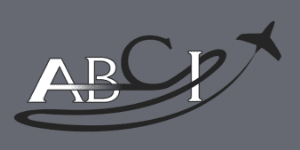
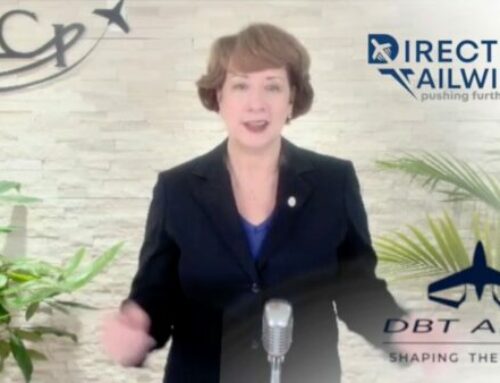
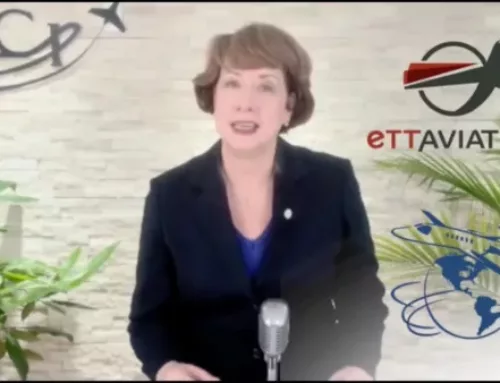
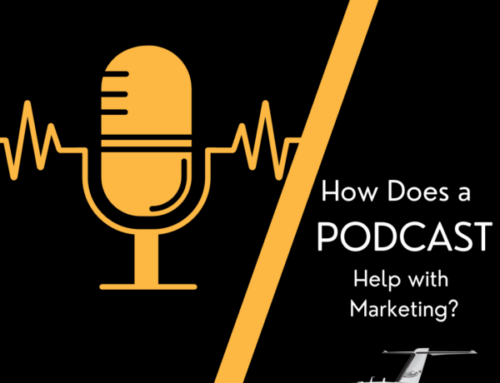
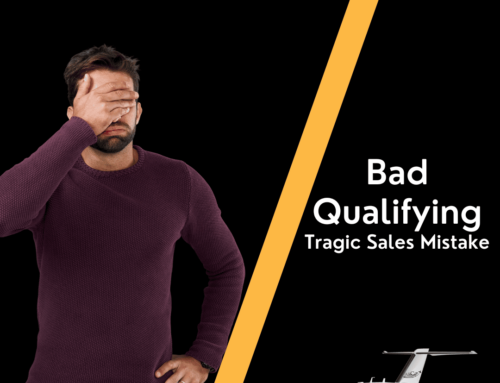

I am often interested in flight services and prices and often buy tickets at online websites
Awesome post! Very well explained. Keep on updating such informative posts.
Thanks!